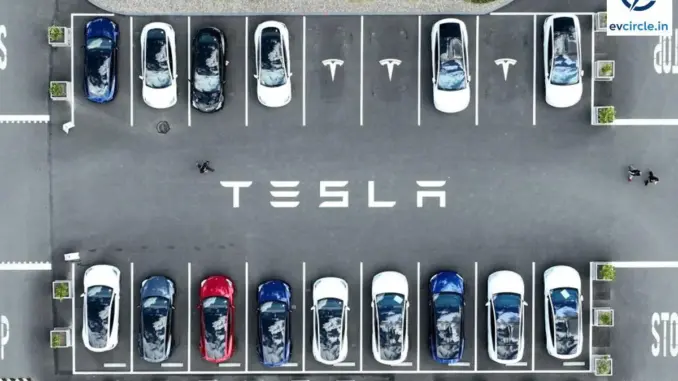
Car shoppers are rushing to purchase electric vehicles as the countdown continues on a tax credit program that lets them save thousands on new and used cars. The federal EV (electric vehicle) tax credit ends on September 30. The program, which permits EV buyers to claim a tax credit of up to $7,500 on a new vehicle and up to $4,000 on a used vehicle, was initially intended to run until 2032, but President Donald Trump’s “One Big Beautiful Bill Act” is ending it years earlier.
An analysis using data gathered from Cars.com found that roughly half of buyers considering an EV purchase are accelerating their timelines to try to get them in before the cutoff. The site reported that demand for new EVs on its platform is up 33 percent compared with a year ago, and up 22 percent for used EVs over the same period. In August, Cars.com polled its customers about what was motivating them to buy EVs, and nearly 75 percent of the 950 respondents said the federal tax credit was a “major or contributing factor” in their decision.
The federal EV tax credit was created in 2022 under the Biden-era Inflation Reduction Act, and since then sales of EVs have steadily risen. Data from Argonne National Laboratory tracking EV sales found that U.S. EV sales for August 2025 were up 14.7 percent over the same month in 2024. In 2024, EV sales rose 7 percent compared with 2023. The laboratory reported that, in total, more than 7.3 million plug-in EVs have been sold in the U.S. since 2010. Used EV sales were up nearly 60 percent in August 2025 over the same month last year, data from Cox Automotive shows.
“As we approach the sunset of the IRA tax credit, we expect September to mirror August’s elevated sales activity, driven by time-sensitive purchase and lease offers,” Cox said in its report.
Some experts warn that interest in EVs will stall once the tax incentive ends on the 30th. Karl Brauer, the executive analyst at iSeeCars.com, told the Detroit Free Press that EV sales are “going to crater” when the incentive ends. He predicted there will be “almost no buyers” after the 30th because EVs are generally priced higher than gasoline vehicles. Tim Horvick, the owner of San Tan Ford dealership in Phoenix, told CBS News the end of the credit worries him and conceded “it could be challenging” to sell EVs once the incentive expires.
Cars.com’s Detroit bureau chief offered a different view, noting that even after the deadline, buyers can still take advantage of incentives from state and local governments. He added that automakers like Nissan, Chevrolet, and Hyundai are already planning to roll out new, lower-priced EV models.
In fact, lower prices for EVs, at least immediately after the tax credit expires, may be coming. If there is a substantial drop in EV sales starting in October, manufacturers that make EVs will need to decide how to price their inventory amid a sharp decline in demand. In 2019, when an EV tax credit for Tesla and General Motors ended, both companies reacted to the falloff in demand by cutting prices.
If prices are reduced, that likely won’t persist over the long term. Makers are likely to reduce production of EV models to relieve supply pressure and support higher prices. While some analysts are more bearish than others about the future of EVs, a survey by Cox found that for more than half of prospective EV buyers, saving money via a tax credit isn’t their primary reason for buying an EV. According to Cox, 65 percent of those prospective buyers said they planned to buy regardless of the tax credit, and only 20 percent said they would instead opt for a gas or hybrid vehicle.
The same survey found respondents planning to buy an EV were more focused on fuel and maintenance savings, vehicle performance, and environmental concerns than the potential savings from a tax credit.
Sustainability advocate with a keen eye on policies, trends, and real-world EV impact.
Leave a Reply